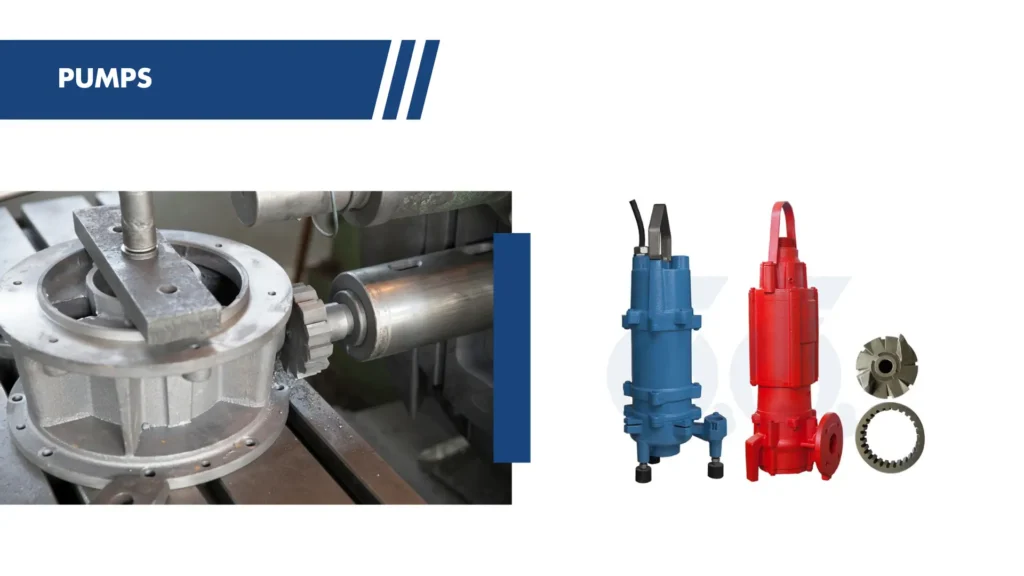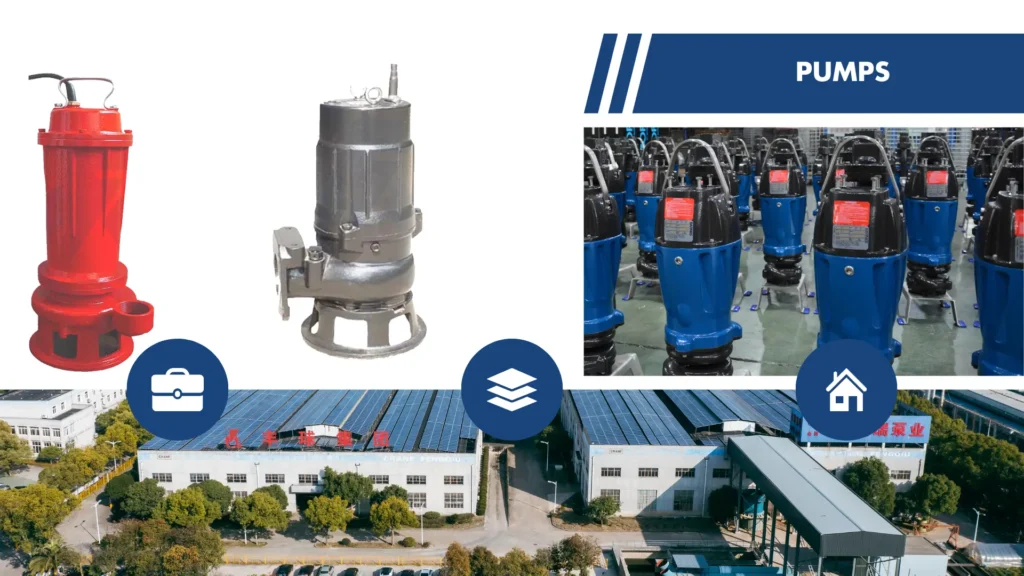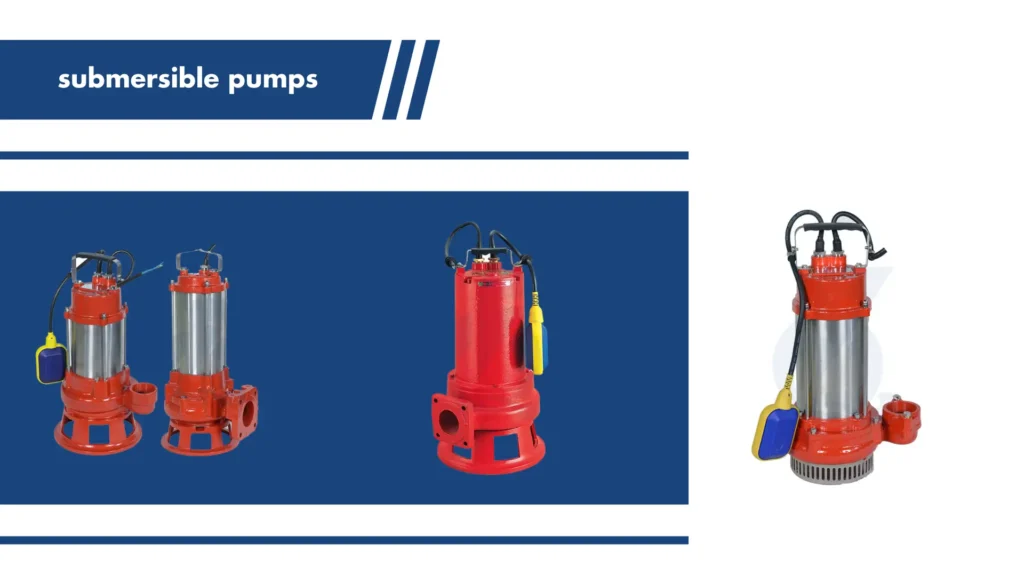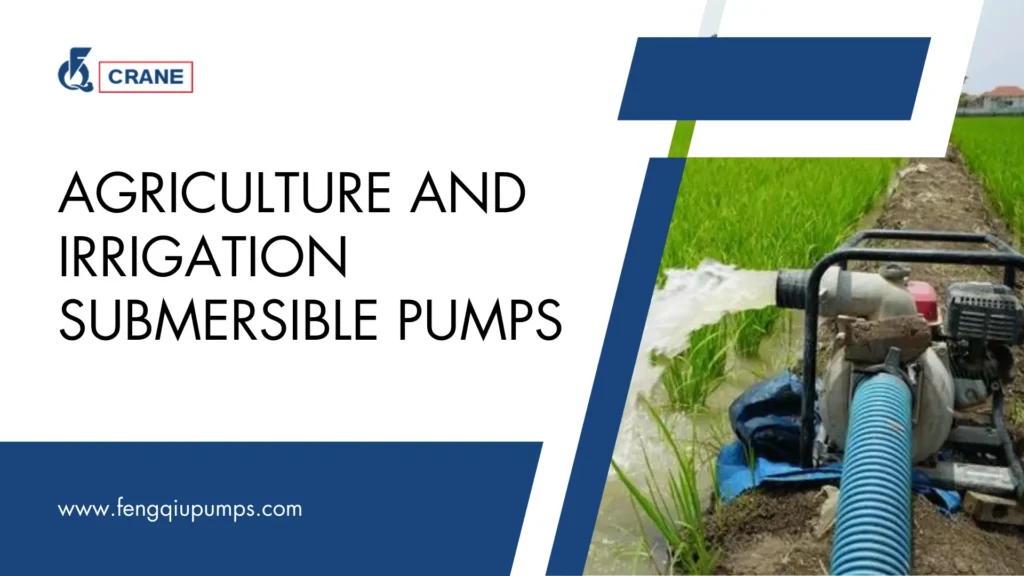Without proper irrigation of crops, there will be poor yields, leading to possible food shortages and economic problems for farmers.
In this regard, over the years, submersible pumps have gained popularity among farmers in their effort to make their irrigation system work best for them.
These new pumps not only increase efficiency but also ease irrigation; hence, they are a very important tool in modern agriculture.
By integrating the submersible pumps into their farming practice, farmers will achieve more productive and sustainable farm outcomes that will eventually help to secure the livelihoods of the farmers themselves and contribute toward food security.
What are Submersible Pumps?
The submersible pumps are designed to work with their complete body immersed in the water.
These are made up of two components: the motor and the pump.

Motor
The motor is generally sealed to avoid the entrance of water because if water enters the motor it will destroy the important parts of the motor.
This makes the motor work reliably in harsh conditions.
The motor will be saved from corrosion and wear by this process, increasing its average life span.
Pump
It pumps water from underground sources or reservoirs to the ground, where it is utilized for irrigation purposes.
The impellers inside the pump are so formed that they can efficiently raise water from considerable depths.
Thus, such assembly of features enables submersible pumps to serve effectively in deep wells, flooded fields, and literally anywhere, making them versatile solutions to address different agricultural needs.
Advantages of Using Submersible Pumps in Agriculture
Direct Water Delivery
They deliver water right to the surface, reducing energy loss to a minimum and maximizing output.
The immediate delivery ensures that a greater portion of the energy applied is translated into useful work, hence the better performance.
Versatility
These pumps can handle different water conditions, ranging from clean clear water to somewhat muddy ones.
This adaptability makes them fit for a variety of agricultural work, including irrigation intended for different types of crops.
Energy Savings
Generally speaking, submersible pumps use less power compared to conventional surface pumps.
This economy may result in substantial savings on electricity bills, which the farmer can use on other aspects of his operations, such as equipment upgrade or improvement of crops.
Read More:
- Benefits of Submersible Pumps in Farming
- Types and Applications of Submersible Pumps in Agriculture
- Advantages of Using Submersible Pumps in Agriculture
How Submersible Pumps Work
The submersible pumps work through a motor that acts upon impellers, which push the water up to the surface.
Pumping Mechanism
When submerged, the pump relies on the motor to turn the impellers. This develops pressure that forces the water up through the discharge pipe.
In this way, deep sources can have much larger volumes of water moved effectively.
Installation Importance
Correct positioning and installation are very crucial for maximum performance and long life.
Correct placement of the pump at depth offers maximum efficiency and protection against sediment or debris building up within the pump.
Noise and Vibration Reduction
Due to the fact that such pumps are submerged, noise and vibration are much lower as compared to surface pumps.
Thus, farmers can have a more comfortable environment.
Choosing the Right Submersible Pump

In choosing a submersible pump correct for your agricultural use, there are several factors that you should consider to choose one that will meet your particular requirement or need.
Depth of Water Source
The depth of the source is something important.
Sources that are deeper will require much stronger pumps in order to draw out water.
Fully understanding the depth will help in knowing the horsepower of the pump that is required.
Required Flow Rate
The amount of water actually required by a farm in irrigation depends on the flow rate.
Various crops differ in water needs, and coming closer to these needs means good health for the crops.
Power Source
Other factors would include the available power source to be used, like electricity or solar.
Some farmers might want to consider solar-powered pumps since these are more sustainable and have lower operating costs.
Budget Considerations
The last thing that a person needs to take into consideration is the budget.
As much as investing in a good quality submersible pump seems expensive at the beginning, in the long run, one will save money and gain efficiency from that end.
Maintenance Tips for Longevity
It will last for years and keep on working efficiently, provided that routine maintenance is established and followed.
Routine Checks
Regularly check for wear and damage.
This way, you won’t be facing bigger problems afterwards, and the pump will keep working fine.
Cleaning
Periodic pumping needs to be cleaned regularly in order to eliminate the debris gathered around it.
Clear blockages from the intake screen so that water can keep up a good flow.

Electrical Inspections
Check electrical connections for corrosion or wear.
Proper maintenance of electrical components can eliminate failures and provide for safe operation of the pump.
Performance Monitoring
Monitor performance of the pump periodically for unusual noises or reduced output.
Such early warnings can help save not only time but also costly repairs, as it would be less expensive to seek a professional when the first signs of trouble arise rather than waiting for a complete breakdown.
Conclusion
Submersible pumps have a lot to offer for agricultural irrigation, from higher efficiency to substantial economy.
If you’re considering upgrading your irrigation setup, studying the advantages of submersible pumps is a prudent investment that will lead to increased agricultural productivity and sustainability in support of farm productivity.

